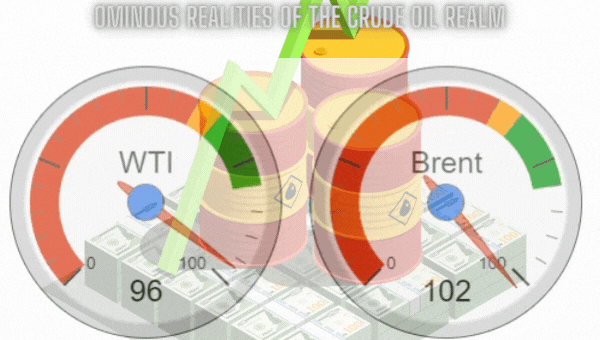The price of
WTI and Brent recorded $96.35 and £102.61 at 07:30 GMT respectively on Monday
morning. With even the vital energy markets not being insulated in the current
conflict, it can even go further up dramatically unless sanity prevails in the
coming days.
The struggle
in many global economies, including those of the richer nations, was palpable
on many fronts when the price of crude oil hit above $80, a few weeks ago.
We can just
imagine the impact on the very global collective economy with the price of crude
oil at these prices. If you add the uncertainties that stem from restricted air
travels, curtailed global financial transactions and above, all the mushrooming
military threats, it can only get worse – and uglier.
As far as
the major European economies are concerned, most of them rely on the gas imported
from Russia. Even Qatar, the largest producer of the LNG, Liquified Natural Gas
until recently, said a few ago that it cannot be a substitute for Russian gas
This is not
the best time to find alternative energy sources; nor are there many to fall
back on; getting the logistics on track is easier said than done, especially when
the military threats – and counter threats – grab headlines in the current
circumstances.
The ongoing
situation has the potential to cause serious ripples in the OPEC+ too, in which
Russia is a key member. If the West insists on not dealing with Russia, the
cartel will certainly be in a difficult position.
In another development,
as the Ukraine crisis went full blown on Thursday, the prospect of reviving the
JCPOA, 2015 Iranian nuclear deal, went awry again.
In the absence
of the Russian influence, the momentum of reviving the deal was dealt a big
blow; Iranians, who were hopeful of a breakthrough, appear to be accepting the new
ground realities.
All in all,
the crude oil markets are, understandably, edgy, because it is not just the
supply side that is at stake, but the demand side too as people – and industries
too, if the situation gets out of hand - tend to use less fuel to cut down on
their bills.







